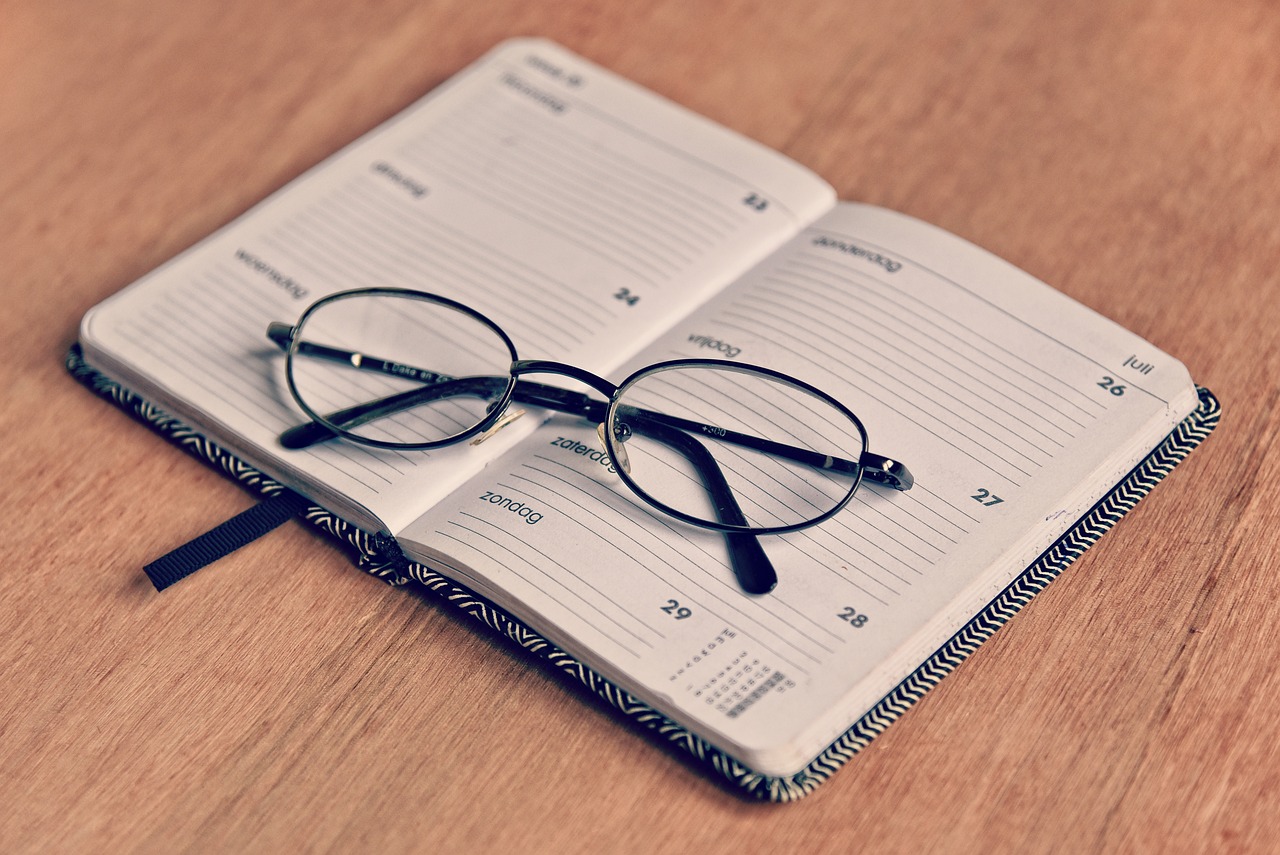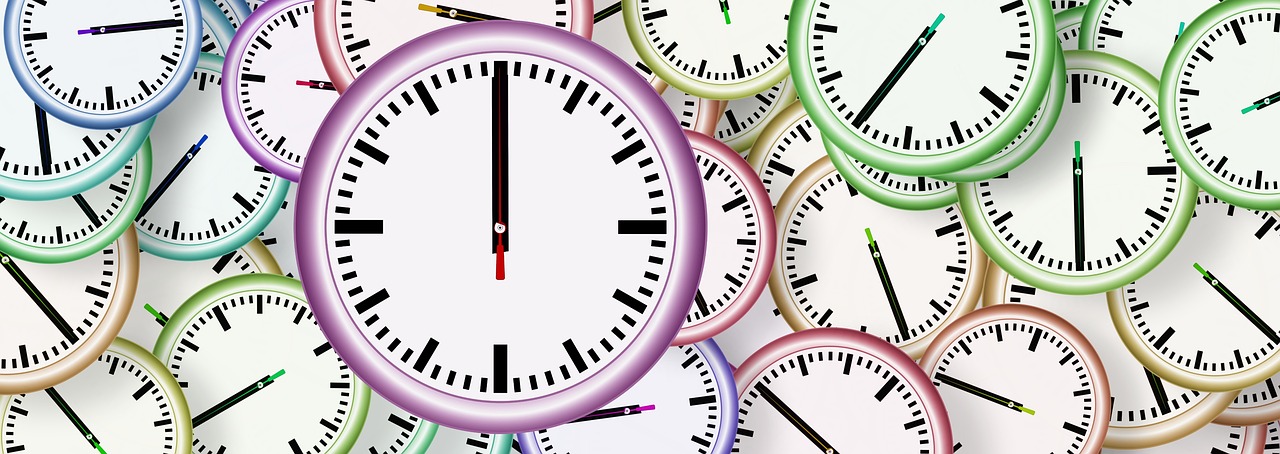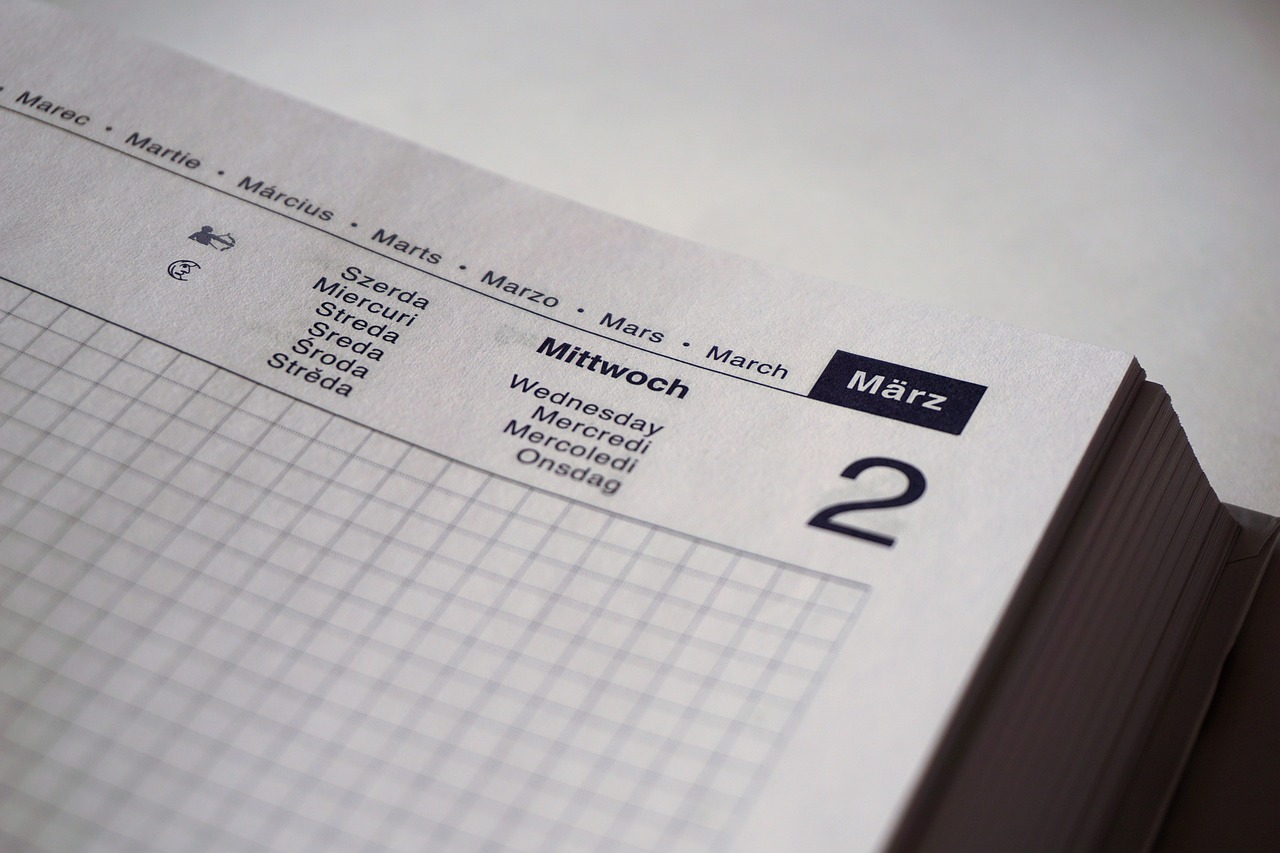How to Create a Weekly Planning Routine
Establishing a weekly planning routine is a key strategy for boosting productivity and reducing stress in our fast-paced lives. By dedicating time to plan our week effectively, we can set ourselves up for success and ensure that we stay on track with our goals.
Setting clear goals is the first step in creating a weekly planning routine. By defining specific and achievable objectives for the week, we provide ourselves with a roadmap to follow and a clear direction for our actions. This helps to keep us focused and motivated throughout the week.
Prioritizing tasks is crucial in effective planning. Identifying the most important tasks that align with our goals allows us to allocate our time and energy efficiently. By scheduling these tasks during our peak productivity hours, we can ensure that we tackle them when we are most focused and energized.
Time blocking is a powerful technique that can help us create a structured schedule for our week. By allocating dedicated time blocks for different activities such as work, exercise, and relaxation, we can maximize our productivity and ensure that we make time for all aspects of our life.
Utilizing a planner or a digital app is essential for staying organized and on top of our tasks. By jotting down our to-dos, appointments, and deadlines, we can ensure that nothing slips through the cracks and that we stay on top of our commitments.
Regularly reviewing our progress is key to maintaining an effective planning routine. By reflecting on our accomplishments, adjusting our plan as needed, and learning from past weeks, we can continuously improve our planning process and stay adaptable to changing circumstances.
Including breaks in our schedule is vital for preventing burnout and maintaining focus. Scheduling short breaks between tasks allows us to rest and recharge, keeping our energy levels up and ensuring that we can sustain our productivity throughout the week.
Identifying tasks that can be delegated to others is a smart way to free up time for more important activities. By outsourcing tasks that are not aligned with our goals or priorities, we can focus on high-impact activities that move us closer to our objectives.
Reflecting on our accomplishments at the end of each week is a rewarding practice that can help us celebrate our successes and recharge for the week ahead. Taking time to relax, unwind, and acknowledge our achievements is essential for maintaining motivation and momentum in our planning routine.

Set Clear Goals
Setting clear goals is the foundational step in establishing an effective weekly planning routine. When you have specific and achievable objectives in mind, it becomes easier to structure your week around them. Think of your goals as the guiding stars that navigate your planning process, keeping you on track and motivated throughout the week.
Imagine your goals as destinations on a map – each one representing a milestone you aim to reach by the end of the week. By defining these destinations clearly, you can create a roadmap for your week, outlining the steps you need to take to reach each goal successfully. This clarity not only helps in prioritizing tasks but also provides a sense of direction and purpose to your weekly planning.
Setting clear goals also allows you to break down larger projects or objectives into smaller, more manageable tasks. This breakdown not only makes the goals seem less daunting but also helps in tracking your progress effectively. It's like dividing a big puzzle into smaller pieces, making it easier to solve one section at a time until the entire picture is complete.
Moreover, when your goals are specific and measurable, you can easily track your achievements at the end of the week. This sense of accomplishment not only boosts your motivation but also provides a clear indication of how well your planning routine is working. It's like ticking off items on a checklist – each checkmark representing a step closer to your ultimate goal.
Incorporating time frames and deadlines into your goals can also add a sense of urgency and accountability to your planning routine. Just like a race with a finish line, having clear deadlines for each goal can push you to stay focused and work efficiently throughout the week. It's this sense of urgency that often leads to increased productivity and a greater sense of satisfaction when you achieve your goals.
Remember, setting clear goals is not just about what you want to achieve but also about why it matters to you. Understanding the significance of each goal can provide the intrinsic motivation needed to stay committed and dedicated to your weekly planning routine. So, take the time to reflect on the importance of your goals and let that drive your planning process towards success.

Prioritize Tasks
When it comes to managing your weekly schedule effectively, one of the key strategies is to prioritize tasks. By prioritizing tasks, you can ensure that you are focusing your time and energy on the most important and impactful activities that will help you move closer to your goals. Think of it as sorting through a pile of papers on your desk - you wouldn't start with the least important document, right? You'd go for the crucial ones first. The same principle applies to task prioritization.
Start by identifying the tasks that are directly linked to your goals for the week. These are the tasks that will have the most significant impact on your progress and success. Once you have identified these key tasks, schedule them during your peak productivity hours. This could be when you feel most alert and focused during the day. By tackling important tasks during these times, you can ensure that you are working on them when you are at your best.
It's also important to consider the urgency and deadlines associated with each task. Are there tasks that have impending deadlines or time-sensitive requirements? These tasks may need to be prioritized higher on your list to ensure they are completed on time. By organizing your tasks based on their importance, impact, and urgency, you can create a roadmap for your week that sets you up for success.

Time Blocking
Time blocking is a powerful technique that involves scheduling specific blocks of time for different activities throughout your week. By allocating dedicated time slots for work, exercise, relaxation, and other tasks, you create a structured schedule that helps you stay focused and productive.
Imagine your week as a puzzle, with each task fitting into its designated time block like pieces coming together to form a complete picture. This method allows you to prioritize important activities and ensure they receive the attention they deserve, ultimately leading to increased efficiency and goal achievement.
Furthermore, time blocking helps you avoid multitasking, which can reduce productivity and increase stress. By focusing on one task during each time block, you can fully immerse yourself in the activity at hand and make significant progress without distractions pulling you in different directions.
Consider using a color-coded system in your planner or app to visually represent different categories of tasks within your time blocks. This visual organization can make it easier to see how your week is structured and ensure a good balance between work, personal time, and relaxation.
Remember, effective time blocking requires flexibility and adaptability. While it's important to stick to your schedule as much as possible, be open to adjusting your time blocks when unexpected events arise or priorities shift. By regularly reviewing and fine-tuning your time blocking strategy, you can optimize your productivity and make the most of each week.

Use a Planner or App
When it comes to effectively managing your weekly schedule, using a planner or app can be a game-changer. These tools provide a centralized place to organize your tasks, appointments, and deadlines, ensuring that you stay on top of your commitments. Whether you prefer the tactile experience of writing things down in a physical planner or the convenience of digital apps that send you reminders, finding the right tool for your planning needs is essential.
Planners offer a tangible way to jot down your daily to-dos, set goals, and track your progress. With customizable layouts and sections for different aspects of your life, such as work, personal, and health, a planner can help you visualize your week at a glance. On the other hand, planning apps come with the benefits of digital organization, syncing across devices, setting recurring tasks, and providing notifications to keep you on track.
One approach is to combine the best of both worlds by using a hybrid system, where you use a physical planner for brainstorming and initial planning, then transfer the information to a digital app for easy access and reminders on the go. This way, you can enjoy the satisfaction of crossing off tasks on paper while also leveraging the convenience of technology to stay organized.
When choosing a planner or app, consider factors such as your preferred planning style, the features you need (e.g., calendar integration, task prioritization, goal setting), and whether you thrive with a minimalist layout or enjoy colorful designs that inspire creativity. Experiment with different tools to find what works best for you and enhances your productivity.

Review and Adjust
Establishing a weekly planning routine can increase productivity and reduce stress. This article will provide practical tips and strategies to help you effectively plan your week and achieve your goals.
Define specific, achievable objectives for the week to guide your planning process and keep you focused on what needs to be accomplished.
Identify the most important tasks that align with your goals and schedule them during peak productivity hours to ensure they are completed efficiently.
Allocate dedicated time blocks for different activities, such as work, exercise, and relaxation, to create a structured schedule that maximizes productivity.
Utilize a physical planner or digital app to organize your tasks, appointments, and deadlines, ensuring that nothing falls through the cracks.
Regularly review your progress, adjust your plan as needed, and learn from past weeks to continually improve your planning routine. Reflect on what worked well and what could be improved. It's like fine-tuning a musical instrument; small adjustments can make a big difference in the harmony of your week.
Schedule short breaks between tasks to rest and recharge, preventing burnout and maintaining focus throughout the week.
Identify tasks that can be delegated to others to free up time for more important or high-priority activities that align with your goals.
Reflect on your accomplishments at the end of each week, celebrate your successes, and use this time to relax and recharge before starting the planning process for the next week.
Stay tuned for answers to common questions about creating a weekly planning routine to further enhance your productivity and goal achievement.

Include Breaks
When creating your weekly planning routine, it's crucial to remember the importance of including breaks in your schedule. Just like a well-oiled machine needs regular maintenance to function efficiently, your mind and body also require moments of rest to recharge and perform at their best.
Think of breaks as pit stops during a long journey. They allow you to refuel, stretch your legs, and clear your mind before continuing on your path. By incorporating short breaks between tasks, you give yourself the opportunity to relax, rejuvenate, and come back with renewed focus and energy.
Research has shown that taking breaks can actually boost productivity. It may seem counterintuitive, but stepping away from your work for a few minutes can help prevent burnout and maintain concentration throughout the day. Whether it's a quick walk around the block, a brief meditation session, or just a moment to enjoy a cup of tea, these pauses can make a significant difference in your overall performance.
Consider creating a break schedule within your weekly plan. Allocate specific time slots for breaks, just like you would for any other task. This intentional approach ensures that you prioritize self-care and avoid the temptation to work non-stop. Remember, breaks are not a sign of laziness but rather a strategic tool to enhance your productivity and well-being.
By including breaks in your weekly planning routine, you are not only taking care of yourself but also setting yourself up for success. So, embrace the pauses, recharge your batteries, and watch how your efficiency and focus soar to new heights.

Delegate Tasks
Delegating tasks is a crucial aspect of effective weekly planning. By identifying tasks that can be assigned to others, you free up valuable time to focus on high-priority activities that align with your goals. Delegation not only lightens your workload but also allows individuals with the appropriate skills to handle specific tasks efficiently.

Reflect and Celebrate
After a week of hard work and dedication, it's important to take a moment to your accomplishments. This is a time to acknowledge the progress you've made towards your goals and appreciate the effort you've put in. Reflecting allows you to gain valuable insights into what worked well and what could be improved for the upcoming week.
Consider creating a reflection ritual at the end of each week, where you set aside some time to review your achievements. This can be done through journaling, meditation, or simply sitting quietly and thinking about your experiences. By taking this time to reflect, you can gain a deeper understanding of your work habits and productivity levels.
Moreover, celebrating your successes is essential for maintaining motivation and morale. Whether it's treating yourself to a nice meal, indulging in a favorite activity, or sharing your achievements with loved ones, celebrating milestones, no matter how small, can boost your confidence and drive to continue striving for excellence.
Remember, the journey towards your goals is just as important as reaching the destination. By incorporating reflection and celebration into your weekly planning routine, you can cultivate a positive mindset, stay motivated, and set yourself up for success in the long run.
Frequently Asked Questions
- What are the benefits of creating a weekly planning routine?
Establishing a weekly planning routine can significantly increase productivity by helping you stay organized, focused, and on track with your goals. It also reduces stress and overwhelm by breaking down tasks into manageable chunks and providing a clear roadmap for the week ahead.
- How can I effectively set clear goals for my weekly planning?
To set clear goals, start by defining specific and achievable objectives that align with your overall priorities. Break down larger goals into smaller, actionable steps and ensure they are measurable and time-bound. This will help guide your planning process and keep you motivated throughout the week.
- Why is it important to prioritize tasks in a weekly planning routine?
Prioritizing tasks ensures that you focus on the most important and impactful activities that align with your goals. By scheduling high-priority tasks during peak productivity hours, you can maximize your efficiency and make significant progress towards your objectives.
- How can time blocking help improve my weekly planning routine?
Time blocking involves allocating dedicated time slots for specific activities, allowing you to create a structured schedule and minimize distractions. By blocking out time for work, exercise, relaxation, and other tasks, you can better manage your time and make the most of each day.
















